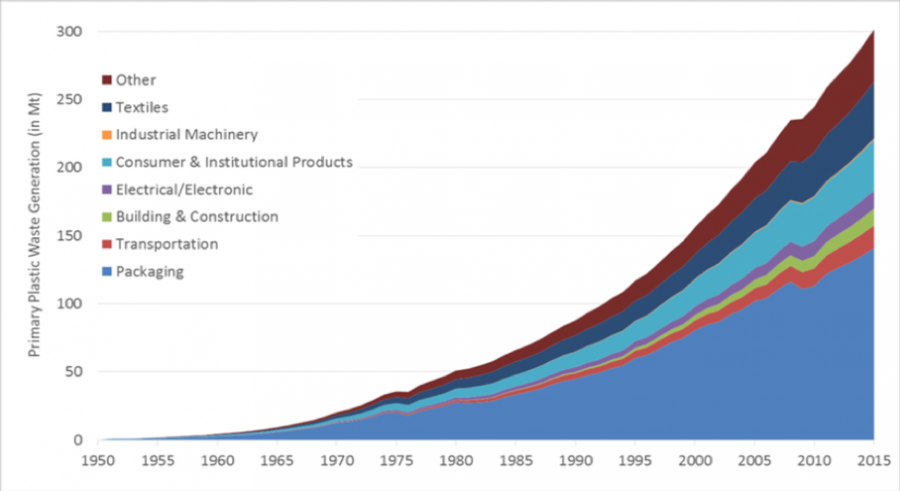Single Use Plastics And The Effects It has On Us
January 21, 2020
Today most everything we buy is wrapped or packaged in plastic, more specifically single-use plastic. Single-use plastics are objects you don’t reuse such as plastic water bottles, plastic utensils, your grocery bags, and even your carry-out boxes from restaurants. These materials can be very detrimental to the environment and affect our lives more than you think. You see, these materials never break down fully; they will break off to be smaller than they were before, but this plastic stays here for thousands of years before it’s fully gone. Roughly 150 million tons have been produced mainly in the last 20 years.
To be able to have our plastic, we create a lot of greenhouse gas emissions just to be able to create plastic, which leads to the warming of our atmosphere, which makes our planet hotter. In 2019, the hottest day of the year here in Bowling Green, was 98 degrees, which set a record-breaking high since the 50’s and that’s not including the heat index which probably made it feel somewhere between 110 and 120 degrees. These high heats lead to very dangerous conditions for humans, animals, and vegetation. Extreme weather conditions can lead to heat strokes, dry out plants, and make the ground too hot for animals to walk on.
Plastics take up 90% of our oceans’ debris and garbage and there are trillions of pounds of this material that will take thousands of years to break down. The Great Pacific Garbage Patch is a 1.6 million kilometer mass in the Pacific Ocean which is just our trash that we’ve thrown away. It’s only expected to grow
There are several alternatives to single-use plastics which I will link here if you would like to help out the environment just a little
- “Awesome Alternatives To Single-use Items”
- 10 worst single-use plastics and eco-friendly alternatives
- The Best Eco-Friendly Alternatives for the Plastic in Your Life
Photo Credit: https://www.interactioncouncil.org/publications/no-such-place-away-plastic-pollution-oceans-why-we-should-care-and-what-do-about-it



